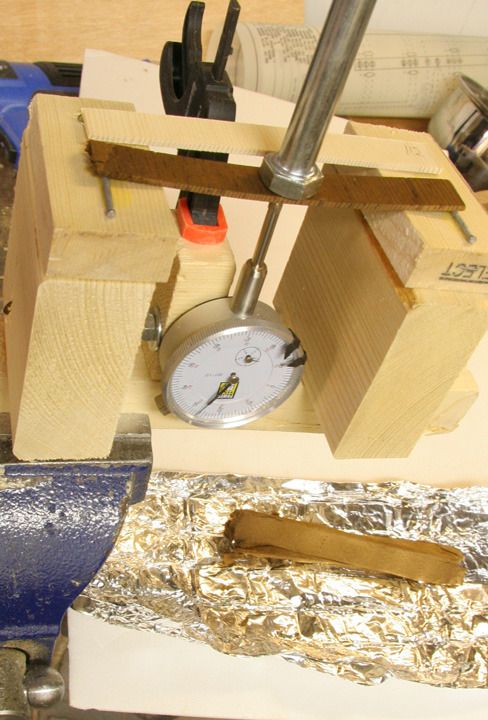curly wrote:A question for Printer2 ;
Please don't take this as a dig . It's not .
No offense taken. I used to be on a forum that discussed religion, politics and other topics that get people all riled up. After a while the moderators invited me to be one of them as I did not get my nose bent out of shape when things got hot. Asking for information is not something I think of as a dig.
You say " Old wood loses hemicelluloses on it's own but you need decades before you have a noticeable change "
Where is that change referenced from ? The data behind that would be fantastic to explore >
It's a real area of interest for me because none of the conventional references such as Dinwoodie or Wilson and White cross the topic of non destructive ageing of timber .
Wish I could remember where I came across that. I have been looking at papers and articles on heat treating, bending, aging of wood and save some of the information for later viewing. I did a quick look through the titles and nothing jumped out at me which it was in. One paper that deals with it is 'CHEMICAL CHANGES IN FIR WOOD FROM OLD BUILDINGS DUE TO AGEING', searched for it and found the link.
http://www.cellulosechemtechnol.ro/pdf/ ... .79-88.pdf
While searching this one came up again also.
Some Aspects of Wood Structure and Function
http://www.nrinstruments.demon.co.uk/wood.html
Have only skimmed these.
Effects of ageing on the vibrational properties of akamatsu (Pinus densiflora) wood
http://www.u.tsukuba.ac.jp/~obataya.eii ... SK2011.pdf
Characteristics of aged wood and Japanese traditional
coating technology for wood protection
http://www.citedelamusique.fr/pdf/insti ... nglais.pdf
The Effect of Mechanical Loading on Conservation of Antique Violin
http://www.woodculther.com/wp-content/u ... li-carlson
Saved this link for when I desire some late night reading.
https://www.google.ca/search?q=http://w ... uploads%2F
http://www.amjbot.org/content/93/10/1439.full
What do we know on " resonance wood " properties?
https://hal.archives-ouvertes.fr/hal-00811117/document
Wood Science for Conservation of Cultural Heritage
'Effects of ageing and heating on the mechanical properties of wood. “ 16 ..... of wood, and therefore, quality instruments are usually made using aged wood. In this ... cohesion is weakened by the degradation and the loss of hemicelluloses.'
http://www.oapen.org/download?type=docu ... cid=343706
Sorry for the hodgepodge of articles. Wish there was one source for the information we want, would spend less time searching for stuff.
Hemicellulose doesn't fall into the usual range of extraneous materials ( commonly referred to as extractives ) as it is bound within the essential structure of the timber . As such it being driven off in the kiln process is a significant alteration and would need to be carefully controlled !
Part of the reason I have been looking into it. Also looking into creep and bending of woods. Looking into plasticizing of wood, in a couple of years I may understand this stuff.

